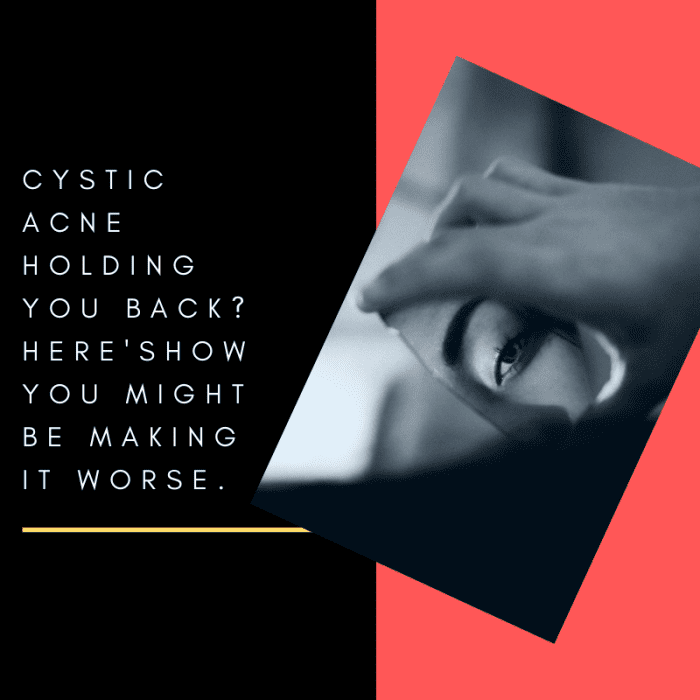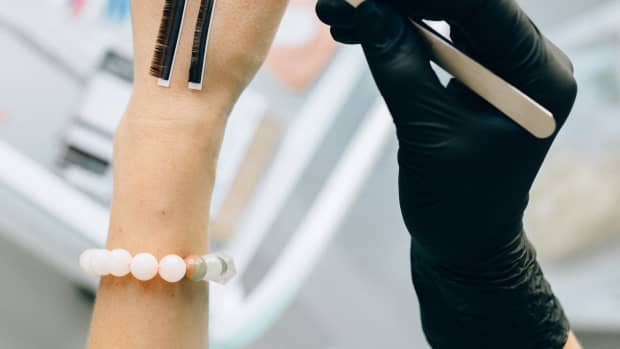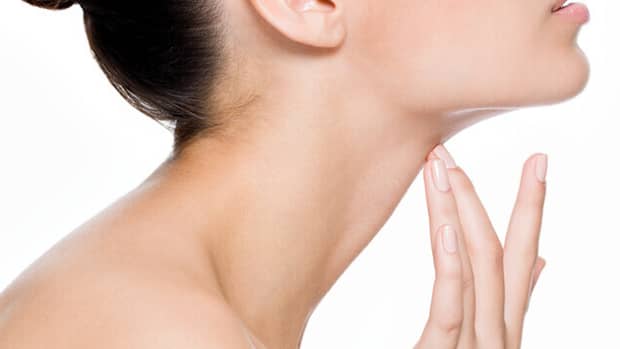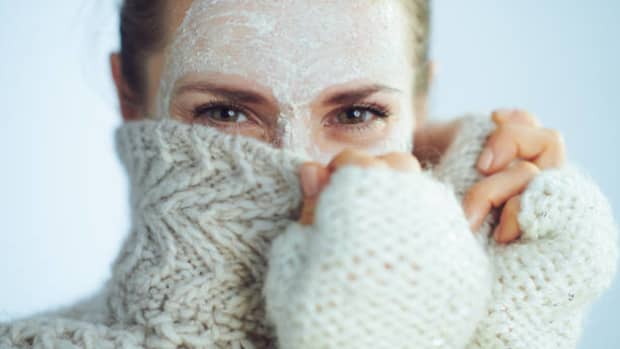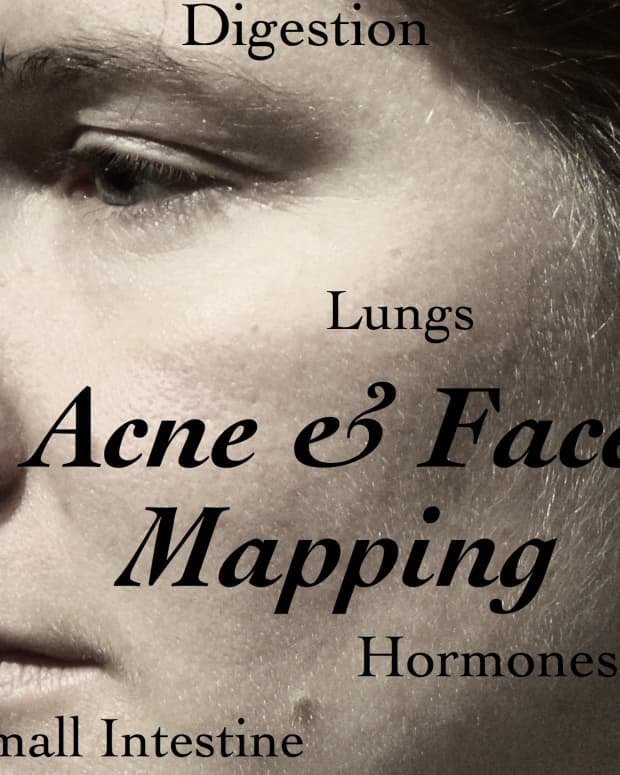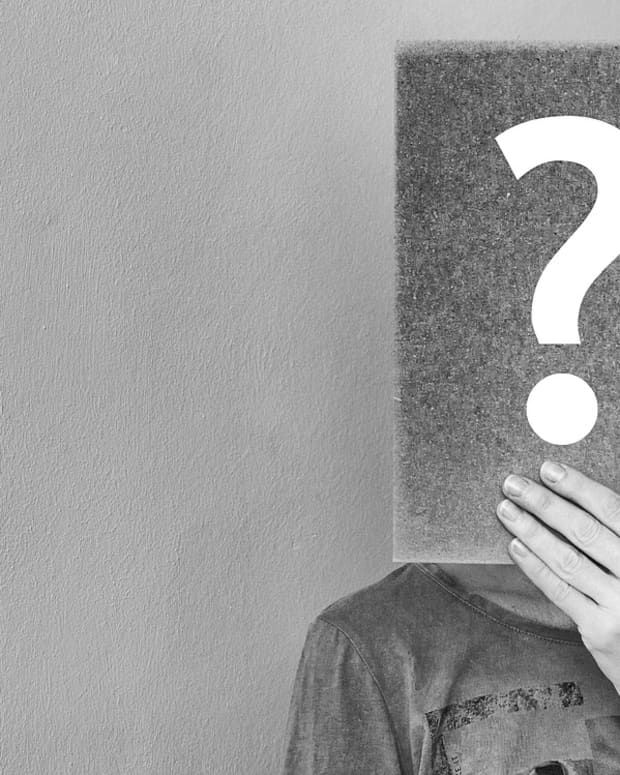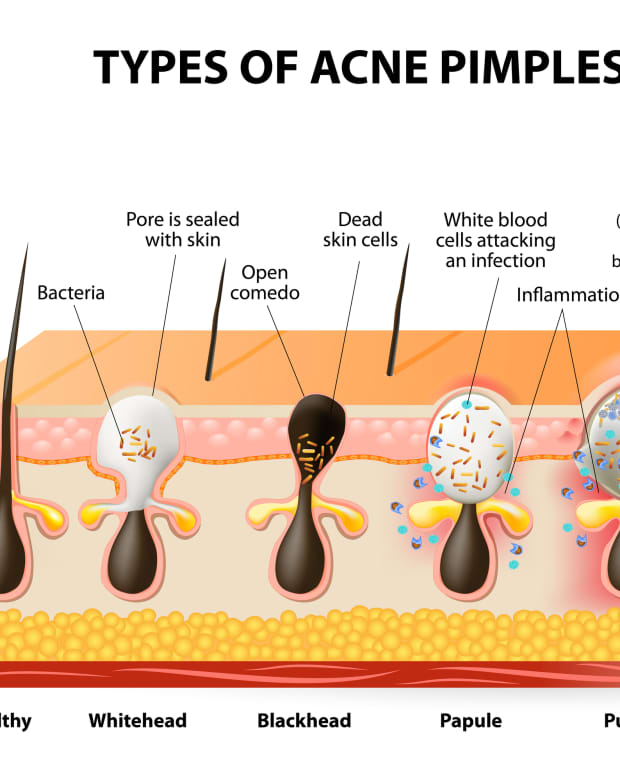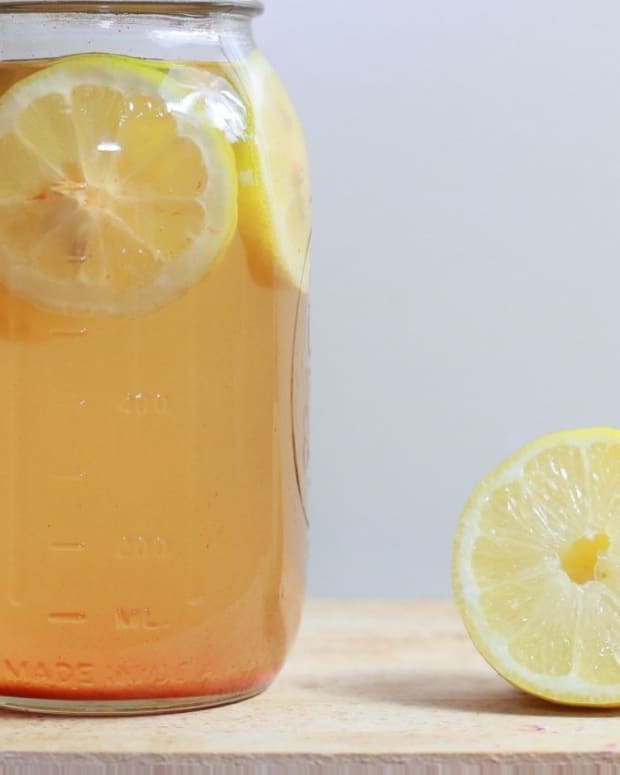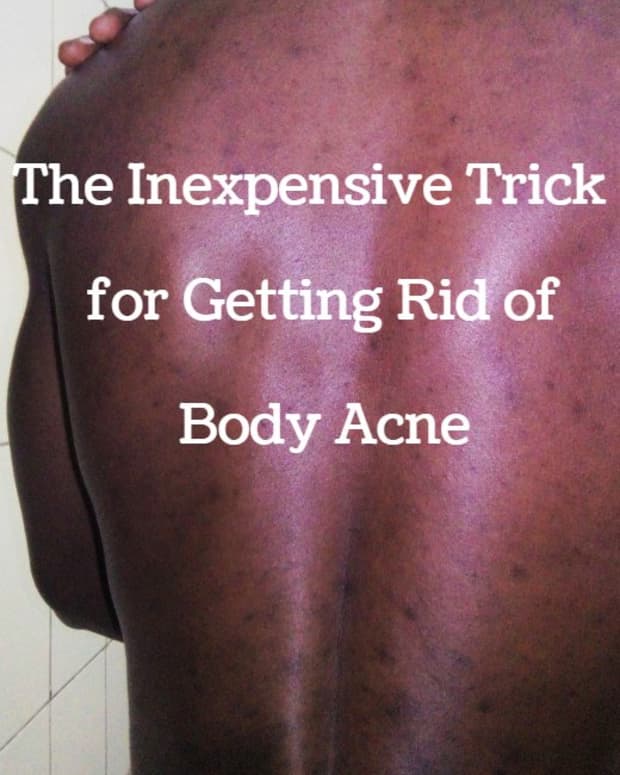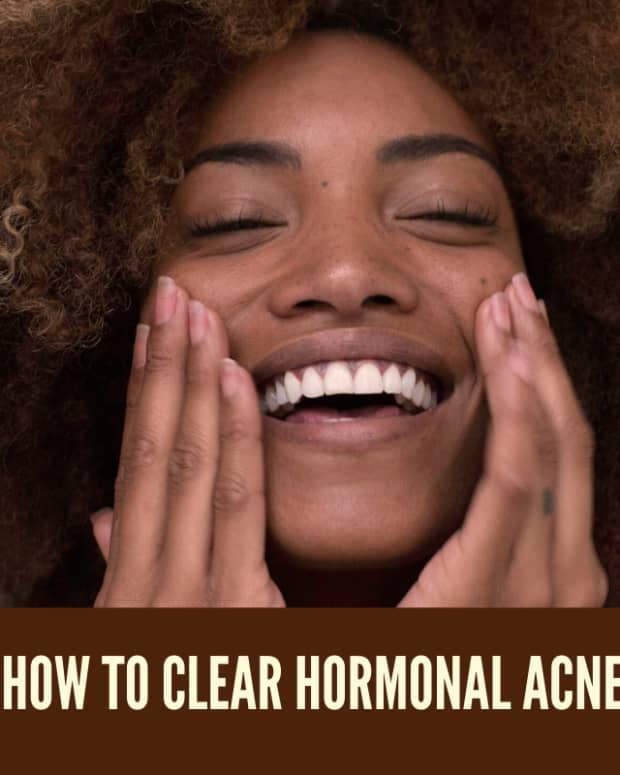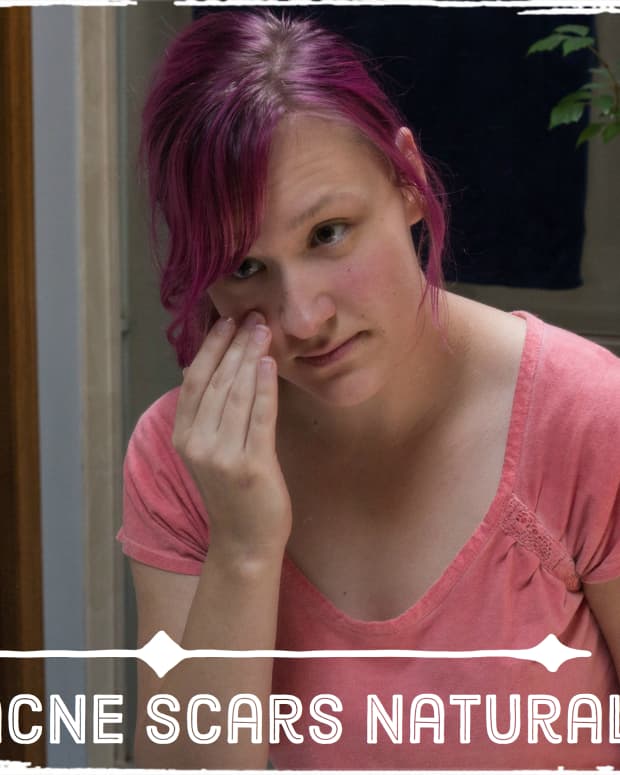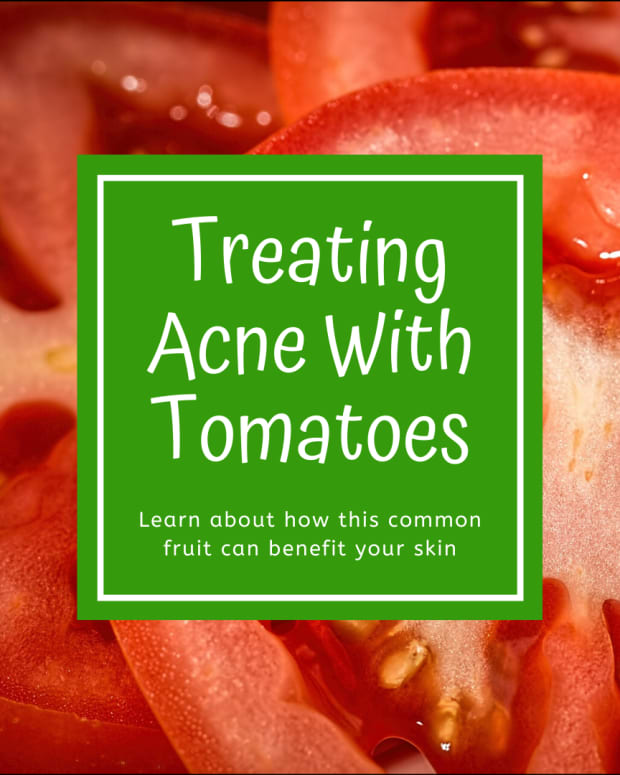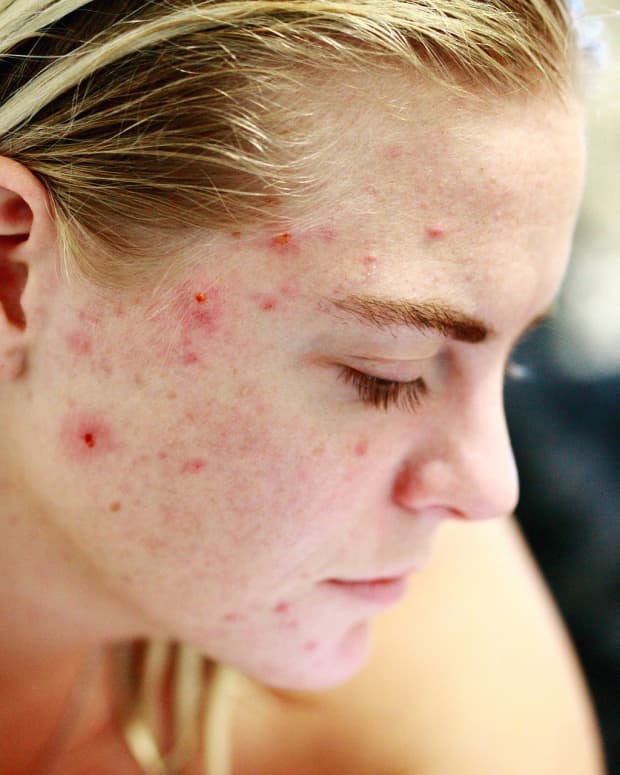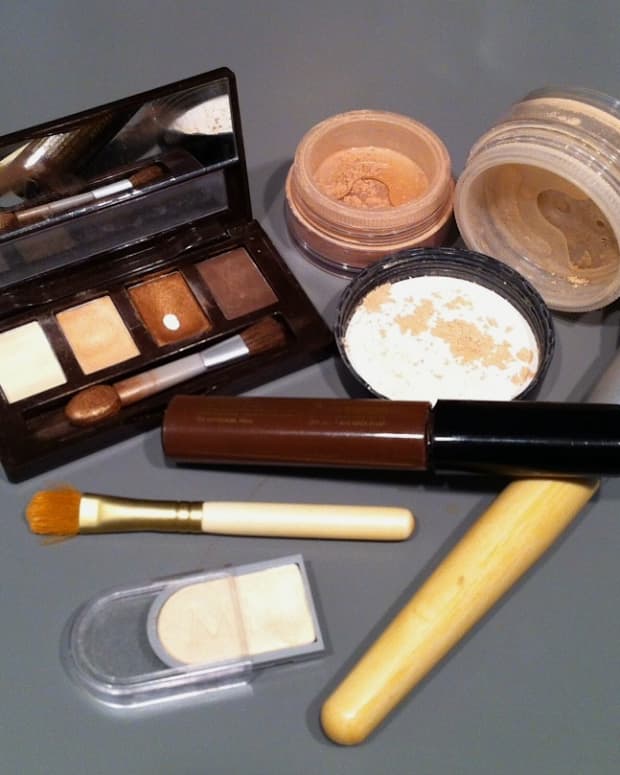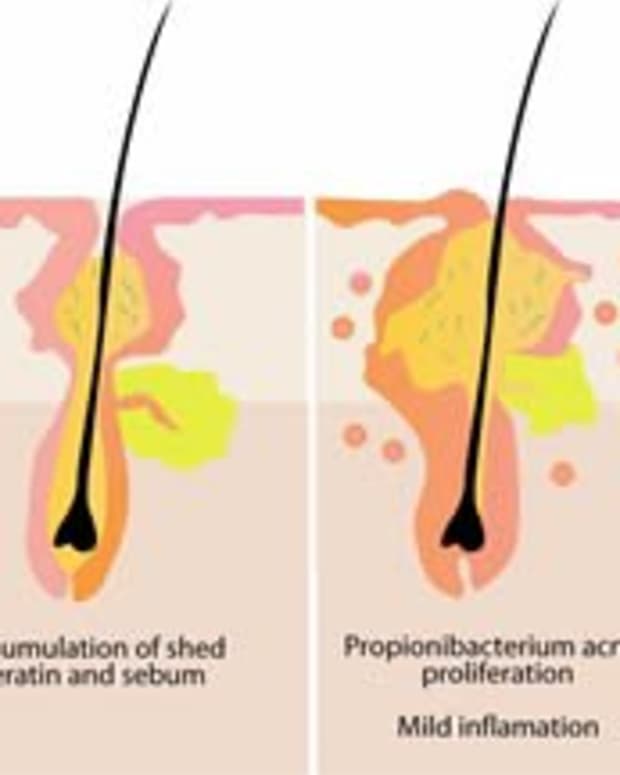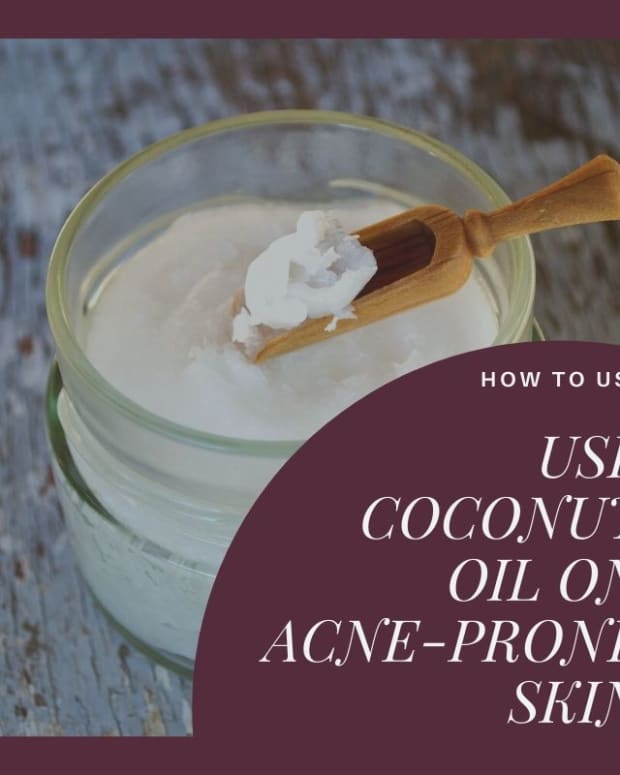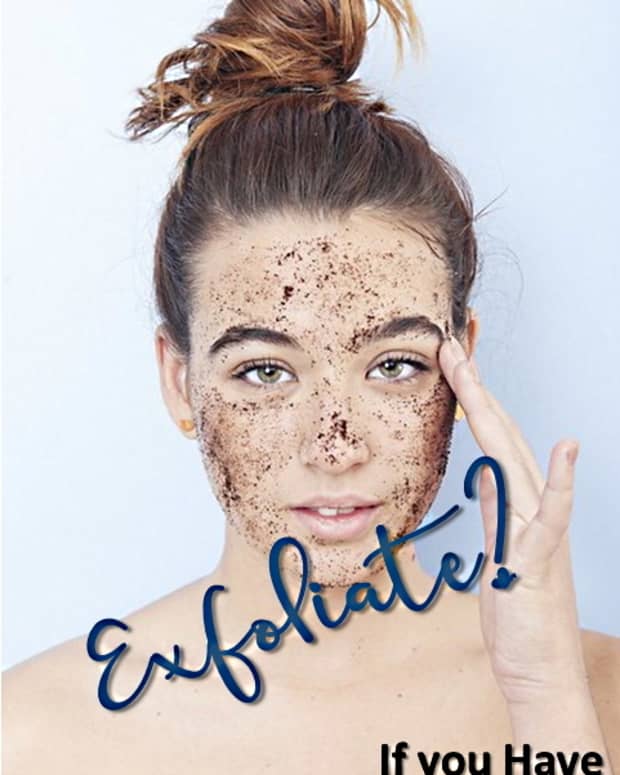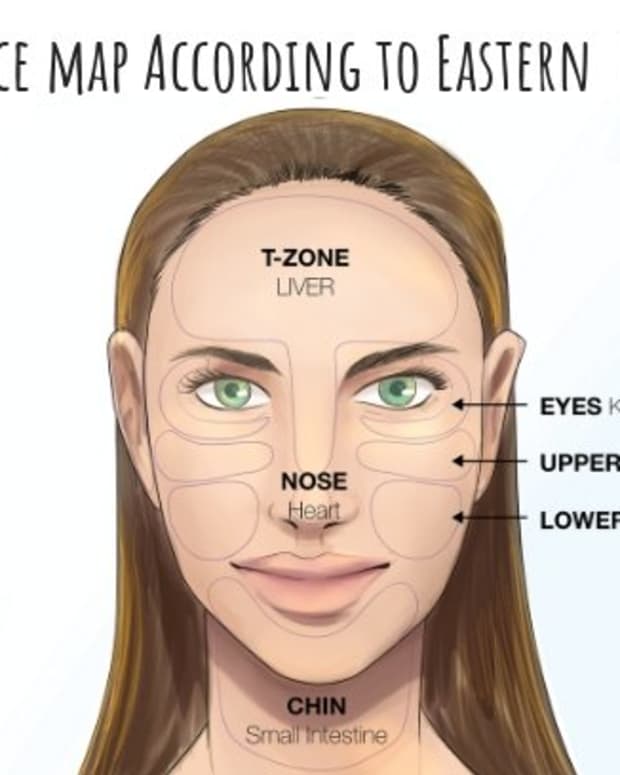How You May Be Making Your Cystic Acne Worse
Amy has been an online writer for several years. Her work often focuses on skin care and skin treatments.
Cystic Acne is a terrible and severe form of acne where “cysts” or “nodules” form deep under the skin and fill with large amounts of pus. They are often extremely painful and inflamed, and each cyst can last for months if not treated. They can also leave scars in the skin tissue even after they’ve healed.
Those suffering from cystic acne are often desperate for answers. It can be highly embarrassing, difficult to conceal with makeup (owing to their extreme red or purple coloration, and the lumpy appearance of the skin), and notoriously difficult to treat.
This article is not intended to identify the cause of anyone's cystic acne. Instead, I'd like to point out some factors that you may be over-looking when trying to deal with the condition. You may find that you are unknowingly making the condition worse by adding further irritation.
Check the following tips with your own habits: Some of these changes may lessen the severity of your cystic acne, making it easier to treat and heal, and repairing your self esteem. To eliminate it completely, anyone with cystic acne should seek the advice of an understanding dermatologist.
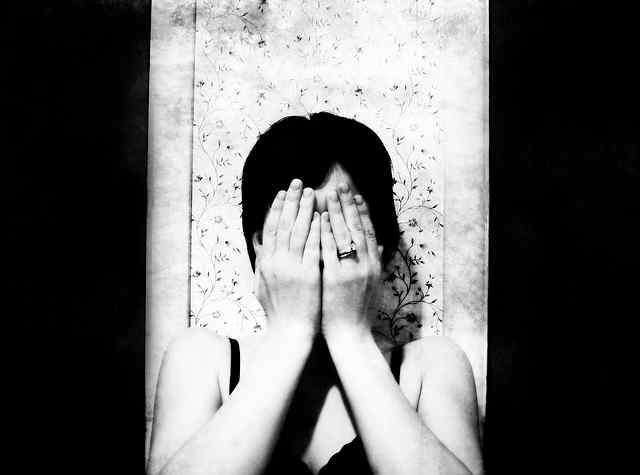
Cystic acne is the most severe form of acne and can be very embarrassing because it is so difficult to hide.
Wolff, CCBY 2.0, via Flickr
Messing With It at the Wrong Time
Don’t mess with the cyst when it is:
- Too deep; no access from surface
- Too painful
- Inflamed; reddened swelling around cyst
Doctors usually say to never ever mess with, “pop,” or drain your pimples. I’m sorry docs, but you’re not the one walking around with this face! Under the right conditions, draining a cyst may speed its healing. This will work ONLY if the area is not inflamed, there is a clear access point to the cyst on the surface of the skin, and you drain it gently. If the conditions bulleted above are present, where the cyst is inflamed, painful, and too deep to access without pain, then you WILL make it worse by messing with it. Squeezing, digging, and scrubbing may break or damage the cyst under the skin and worsen its condition. You might also bruise the surrounding tissue. Leave the angry ones alone; as bad as they are, they will be worse if you irritate or damage them.
Messing With a Small Blackhead That Then Becomes a Cyst
Your body may have a hypersensitive inflammatory response right now, & messing with it causes it to overreact. You had a blackhead, squeezed it, and now it’s a cyst.
What causes this hypersensitivity to inflammation is a whole other issue, but you may be making your acne worse by triggering this response. Try not to micro manage your face. Small blackheads may be relieved through simple washing, facial masks, or plain ol’ time. Not every pore needs to be perfect, especially if you notice that they explode into cysts after you mess with them.
Over-Washing Your Face
- Using products that are too strong for your face, or the wrong products
- Using products too frequently
- Scrubbing roughly may irritate the area and break or damage the cysts under the skin, causing additional inflammatory responses
I disagree with the notion that acne is caused by clogged pores, and that regular washing will “fix” this problem. No dermatologist I have seen ever suggested this was the cause of cystic acne, or acne in general. In my personal experience, cystic acne is largely an internal issue, and washing your face has little to do with it. In fact, if you are doing the things above, you may be making things worse by stressing out your skin tissue, causing it to dry out or have to deal with all sorts of chemicals.
If you’re obsessed with washing your face because you think it will help your cystic acne, cut it out. Your natural facial oils are not enough to cause the severe inflammatory response seen in cystic acne. It is much more likely that the root cause is some toxin your skin is trying to flush out. Remove makeup gently, without harsh washes or scrubbing. You may find your inflammation reduces with less washing.
Also, look at which products you’re using. Many people are turning to natural substances and ditching the store-bought products altogether. Coconut oil can moisturize (it soaks in wonderfully), raw honey can cleanse, and recipes for homemade facial masks abound on the Internet.
Find the Right Makeup
I have written another article just on this topic: Is Your Makeup Causing Your Acne? The Troubles of Bismuth Oxychloride and Gluten. Go here to learn more about these two ingredients and find a list of cosmetics that DON'T have them!
Check Your Makeup
- Some makeup products contain gluten, this may be tricky to identify
- Some makeup products contain bismuth oxychloride, known to irritate and cause cystic acne in some
- Clean your brushes regularly with soap and warm water, also cycle out your makeup about every 6 months. They can harbor bacteria over time.
Unfortunately, some people have discovered that it was actually their makeup that was the problem! What a paradox, to turn to makeup to cover a pimple, but the skin gets worse, so you use more makeup, etc. Do some research on your makeup company and where you might find ones without gluten or bismuth oxychloride in them. The popular brand BareMinerals makes many gluten free products, but almost all of their powders contain bismuth oxychloride. Afterglow Cosmetics is free of both.
Read More From Bellatory
Check Your Medications
- Ask your doctor or a dermatologist if medications you are taking might be affecting your hormones or your skin.
- Hormonal treatments, such as birth control, may affect your skin. Switching types may help.
Hormones are often blamed for causing acne. I am skeptical on whether they alone would cause severe cystic acne (I think you’d have other severe hormonal symptoms if they were that unbalanced), but they may be making it worse. You should talk to a doctor or dermatologist about this possibility.
Allergies
- Wheat allergies are common
- Health concerns about Gluten (a protein found in wheat, rye, barley, and cross-contaminated oats) are rising in the public sphere
- Dairy is another common allergy
- Lactose intolerance is also common. Rather than being allergic to dairy outright, lactose intolerance concerns a sugar found in milk. In mild cases, limiting dairy to fermented or cultured items eliminates the problem, but in severe cases dairy may need to be avoided completely.
Allergies can be difficult to identify, and may require some experimental diet changes to figure it out. Unfortunately, these allergy issues are usually an all-or-nothing deal. You cannot simply reduce your intake of gluten, for example. You must cut it out completely to see the benefits. Many people claim their acne disappears after eliminating an allergen, and more dermatologists are mentioning it as a possibility to their patients. You may not experience the “typical” symptoms of these allergies, such as digestive problems, but still find acne relief after eliminating it.
See a Dermatologist
You really should. Find one who will listen to you.
I completely understand if you’re thinking, “been there, done that.” I know that dealing with doctors can be frustrating, especially if you feel they are not listening to you. But cystic acne is not just a mild annoyance. It is a real concern, and a dermatologist may have a solution for you. Keep in mind that cystic acne is a severe condition and difficult to treat, so you may need to try more than one therapy before finding what works. If you have literally tried everything the dermatologist has to offer, even isotretinoin/Accutane (or perhaps you are refusing it because of the side effects or the iPledge program), then I would suggest considering the allergy options above and confirming that your makeup does not contain bismuth oxychloride.
Find Relief
Like I said, I am not claiming that these changes will cure you of cystic acne. Some of the things noted above have been found to be the cause of cystic acne for many people. For others, it may be an added stress that is aggravating the condition. Cystic acne is no fun and I know many suffers would gladly take any relief, even if only partial. Reconsider your habits so that you are not accidentally making things worse than they have to be.
Let me know in the comments if you have other tips for improving cystic acne, or if any of the above tips helped you or someone you know. Thanks and good luck!
©StandingJaguar
This content is accurate and true to the best of the author’s knowledge and is not meant to substitute for formal and individualized advice from a qualified professional.
Comments
Sarah on March 11, 2018:
I use Rodan + Fields unblemish products for my previously cystic and regular acne breakouts! Happy to day i am now down to minimla breakouts and no more cyctic acne!
Sheila on December 02, 2017:
On FB look up Plexus and cystic acne. A lot of people are getting relief from that product!
Hatty on June 20, 2017:
I have a cystic on my left cheeck near my mouth it's the size of a cap bottle and it's purple when ever I wash my face. I've tried so many methods nothing working from hot compression to tree tea oil cutting out dairy . I've even stopped wearing makeup
Some times I get pain from the cystic help please
unbelievable on September 27, 2016:
i'm a dude and don't wear makeup or wash with product. i still get acne even though I don't eat sugar (except what's in every processed food) and don't eat dairy.

